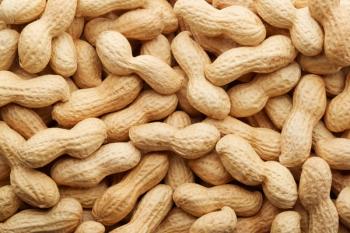
Behavior: Ask the experts: Parents and sports: Too much of a good thing?
Q As a pediatric pulmonologist, I treat quite a few children and adolescents who have exercise-induced asthma and other causes of exercise limitation. The younger children often are reluctant to talk about their experiences with sports, but their parents enthusiastically carry the conversation. In many instances, I have noticed that, when sports are involved, a parent's enthusiasm can go well beyond the usual parental pride. Such parents actually seem far more interested and invested in the sport than the child is. The child may even appear weary and disinterested when the subject comes up.
Q As a pediatric pulmonologist, I treat quite a few children and adolescents who have exercise-induced asthma and other causes of exercise limitation. The younger children often are reluctant to talk about their experiences with sports, but their parents enthusiastically carry the conversation. In many instances, I have noticed that, when sports are involved, a parent's enthusiasm can go well beyond the usual parental pride. Such parents actually seem far more interested and invested in the sport than the child is. The child may even appear weary and disinterested when the subject comes up.
What is the physician's role in these situations? We certainly don't want to discourage physical activity, but the primary issue seems to be demanding parents who have unrealistic expectations for their children.
Springfield, Mass.
A The scenario Dr. Salva describes is fairly typical. Almost 90% of American children participate in organized sports at some point, and our culture keeps pushing a substantial percentage of children into competition at younger and younger ages. The emphasis on competition may be a trickle-down effect from such professional sports as basketball. A multimillion dollar draft now extends to our high schools; the Olympic development program reaches into early adolescence and, in some sports, all the way down to the pre-teen level.
Parents-and especially parents who are coaches-probably have become the most common source of competitive pressure. From almost every sideline, you can hear parents yelling advice and criticism to their child on the playing field. And it's certainly not uncommon for parents to get into arguments with referees and parents from the opposing team while watching their child (who may be only 9 or 10 years old) play Little League or soccer.
Many of us have fond memories of playing organized sports, and some of us are still playing them. We understand that there may be no better way for a child to gain a sense of self-esteem, autonomy, teamwork, social skills, and the beginnings of a healthy lifestyle. You already play a key role in assessing a child's readiness for sports through the preparticipation athletic evaluation, and you are ideally situated to offer guidance about preventing and treating injuries. Could not such occasions, as Dr. Salva asks, also provide an opportunity to counsel a child or parent against expectations that are unreasonable and damaging?
Pediatricians from the Committee on Sports Medicine and Fitness of the American Academy of Pediatrics (2000, 2001) have already recognized the risk to children's physical and emotional health by stating "unrealistic parental expectations and/or exploitation of young athletes for extrinsic gain can contribute to negative psychological consequences for young elite athletes." (American Academy of Pediatrics Committee on Sports Medicine and Fitness: Intensive training and sports specialization in young athletes. Pediatrics 2000; 106[1,July]:156)
Parents must differentiate between their own needs for success and achievement and their child's emotional well-being and physical abilities or limitations. One side effect of a parent's over-involvement in the child's sports activities is Dr. Salva's observation that a parent's excessive enthusiasm can eventually lead to disinterest and passivity in the child when sports are mentioned. Other signs of overbearing parental interest include:
The pediatrician should ask right up front if involvement in sports is fun for the child. Is it what the child really wants to do? And is the chosen sport appropriate for the child's age?
Newsletter
Access practical, evidence-based guidance to support better care for our youngest patients. Join our email list for the latest clinical updates.








